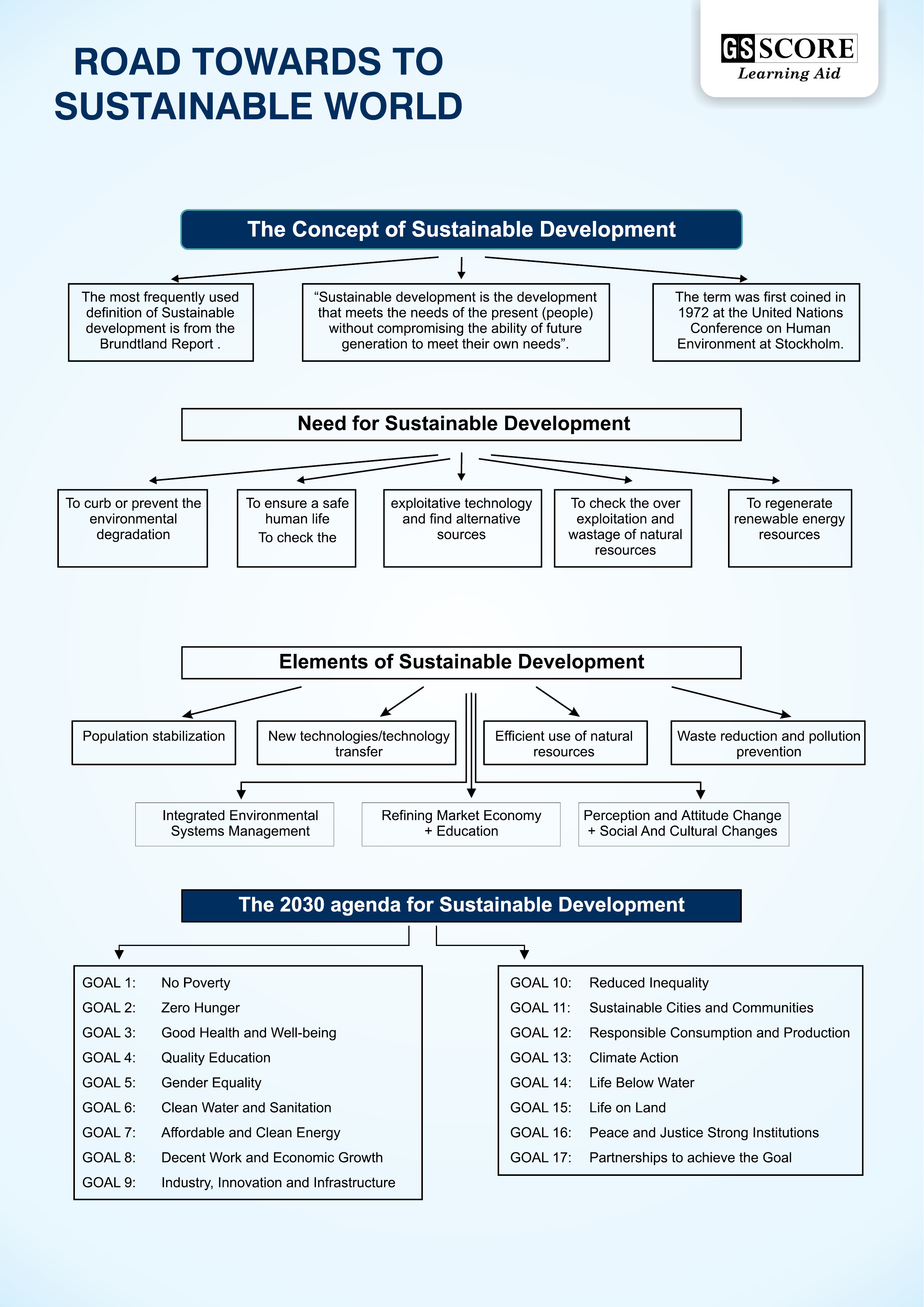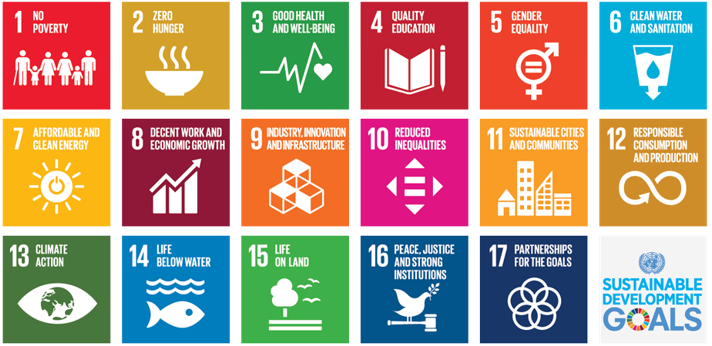

The 2030 Agenda embodies the following core principles:
Universality
- The 2030 Agenda is universal in scope and commits all countries, irrespective of their income levels and development status, to contribute towards a comprehensive effort towards sustainable development.
- The Agenda is applicable in all countries, in all contexts, and at all times.
Leaving no one behind
- The 2030 Agenda seeks to benefit all people and commits to leave no one behind by reaching out to all people in need and deprivation, wherever they are, in a manner which targets their specific challenges and vulnerabilities.
- This generates an unprecedented demand for local and disaggregated data to analyse outcomes and track progress.
Interconnectedness and Indivisibility
- The 2030 Agenda rests on the interconnected and indivisible nature of its 17 SDGs. It is crucial that all entities responsible for the implementation of SDGs treat them in their entirety instead of approaching them as a menu list of individual goals from which they pick and choose.
Inclusiveness
- The 2030 Agenda calls for the participation of all segments of society—irrespective of their race, gender, ethnicity, and identity—to contribute to its implementation.
Multi-Stakeholder Partnerships
- The 2030 Agenda calls for establishing multistakeholder partnerships for mobilising and sharing knowledge, expertise, technology and financial resources, to support the achievement of SDGs in all countries.
- The most frequently used definition of Sustainable development is from the Brundtland Report “Sustainable development is the development that meets the needs of the present (people) without compromising the ability of future generation to meet their own needs”.
- In other words it is improving the quality of life of the present generation without excessive use or abuse of natural resources, so that they can be preserved for the next generation.
- The term was first coined in 1972 at the United Nations Conference on Human Environment at Stockholm.
- The most important piece of writing on Sustainable development is in the publication by the World Commission on Environment and Development (WCED) in 1987 titled “Our Common Future”.
- In 1992 at the Earth summit at Rio-de-Janerio, 170 countries signed many important documents on sustainable development pledging preservation of environment.
- Sustainable development is often referred as the marriage of economy and ecology. i.e. to attain economic development without compromising the ecological balance. It can be attained by rigorous policy change, taking action and altering practices.
- Sustainable development as a model and important environmental theme, is evolving.
- Sustainable development means economic development and improvement in standards of living which do not impair the future ability of the environment to provide sustenance and life support for a population.
- The objective of sustainable development is to provide for the economic well being of the present and the future generations and to maintain a healthy environment and life support system.
- In essence the sustainable development promotes development which reduces the disparities in lifestyles and global consumption, improves and maintains a healthful local environment.
- The standard definition of environmental sustainability comes from Brundtland (World Commission on Environment and Development, 1987): "Development Aar meets the needs of the present without compromising the ability of future generations to meet their own needs."
- This allows an enterprise practicing sustainable development to improve its own agenda of protecting the environment and also to influence improvement towards better standards in its own agenda of protecting the environment and also to influence improvement towards better standards in its suppliers, contractors and partners.
- For example, environmental concern has resulted in the development of 'cleaner' fuels by the energy companies, Research and development community is continuously trying to create devices and technologies, which can provide higher energy saving and greater energy efficiency.
- Global chemical industry also has responded to the challenge of fulfilling the requirements of sustainable development by playing an environment-friendly role for the benefit of the future generations.
- They gain environmental edge by generating less waste and useful bi-products, which could be used for commercial advantage.
- Global energy and chemical enterprises are coming up with innovations, which not only fulfil the basic requirements of the growing population, but also provide morn for the prosperity of future generations by practicing the principles of sustainable development.
- As the finite spaceship require the interdependency of the people and systems, a finite world require people to work together within the limits set by the natural system.
- It requires efficiency in the use of resources and care in the use of the environment.
- A compelling goal for sustainable development will be to further integrate environmental energy and economic policy to provide "win-win" situations.
- Here are certain parameters which can help the world attain sustainable development and protect the environment at the same time
-
- Population stabilization
- New technologies/technology transfer
- Efficient use of natural resources
- Waste reduction and pollution prevention
- Integrated environmental systems management
- Refining market economy + Education
- Perception and attitude change + Social and cultural changes
There are three components which are essential towards this goal related
- Adopting a holistic environmental management framework for related environmental problem and solutions.
- Fostering a creative combination of regulation. Incentives and penalties to guide consumer, industry and the market place.
- Research and development initiatives that emphasize the utilization as well as the development, of energy efficiently and renewable energy technology.
The economy and the environment are inextricable. No human activity can he conducted without some connection to the environment, whether the provision of clean water, food or the latest version of a personal computer.
- We need to take the "long view”. The sustainable development framework or policy concept entails thinking far into the future and now our present actions might affect our ability to live a wholesome and fulfilling life. This raises the issue of intergenerational equity.
- The scale of human activities is important. We should be interested in how our activities make an impact not just in our own backyard but also in the global backyard. In addition, activities may have impacts that span decades and beyond or have impacts that are not felt until future generations. One can look at sustainable development on a global, regional, national, stale, local and even individual scale.
- Human actions must be grounded in an enhanced understanding of how the world works and how we can work with the world. Ecological and ecosystem concepts should be an integral part of decision making.
- Sustainable development occurs within a dynamic and evolving set of interlocking systems: Ecosystems and economic and social systems. These systems co-evoIve to fill niches, thus changing dynamically over time. The world and human response to it are not in a static equilibrium. Change is the norm, not the exception!
- Thinking about sustainable development requires an interdisciplinary approach to addressing environmental and human problems on the earth. No one discipline can provide the particular perspectives, expertise and tools to address the wide range of challenges in moving towards a sustainable future
- The application of technology has been the central means of greater human productivity and consequently, increases the standard of living.
- We need new technologies, from materials to processes, un-thought of till now.
- Technology focussed on sustainable development is a key to solving problems created in the past and to preventing new ones in the future
- Sustainable technology focuses on pollution prevention and clean
- Pollution prevention minimizes undesirable effluents, emissions and wastes from products and processes that obviate the need for treatment and control.
- A preventive approach includes using fewer or non polluting materials, deigning processes that minimize waste products and pollutants and directing the latter to other useful purposes, thereby creating recyclable products.
- Clean technology uses less fuel or alternative fuels to produce energy and generates little or no waste for industry, agriculture and transportation.
- The role of the government in developing and adopting technology for sustainable development is crucial.
- There is an opportunity to implement policies to stimulate investment in new environmentally beneficial technologies and to encourage phasing out of outmodel capital equipment.
- Three essential recommendations worthy of consideration relate to regulation affecting technology, incentives and government -private sector cooperation.
- Regulatory requirements thus can produce innovative solution to environmental problems, such as the labelling of major appliances for energy efficiency.
- Product labelling can increase public understanding and may direct market forces towards more environment- friendly technologies and products.
- This Agenda is a plan of action for people, planet and prosperity.
- It also seeks to strengthen universal peace in larger freedom.
- By endorsing the 2030 Agenda for Sustainable Development and its 17 Sustainable Development Goals (SDGs) in 2015, the world community reaffirmed its commitment to Sustainable Development.
- Through this Agenda, 193 member states pledged to ensure sustained and inclusive economic growth, social inclusion, and environmental protection, fostering peaceful, just, and inclusive societies through a new global partnership.
- The 2030 Agenda is universal, transformative, and rights-based.
- It is an ambitious plan of action for countries, the UN system, and all other actors.
- The Agenda is the most comprehensive blueprint to date for eliminating extreme poverty, reducing inequality, and protecting the planet.
- The Agenda goes beyond rhetoric and lays down a concrete call to action for people, planet, and prosperity.
To conclude it is important to realize that "sustainability" from the standpoint of either the availability of natural resources to meet the needs of the world's population in an equitable manner, or from the standpoint of environmental protection is really two sides of the same coin, i.e. an integral part of the solution to both involves finding ways to limit per capita natural resource consumption in both developed and developing nation and find a way to substitute renewable resources and "waste products".

Related Articles


